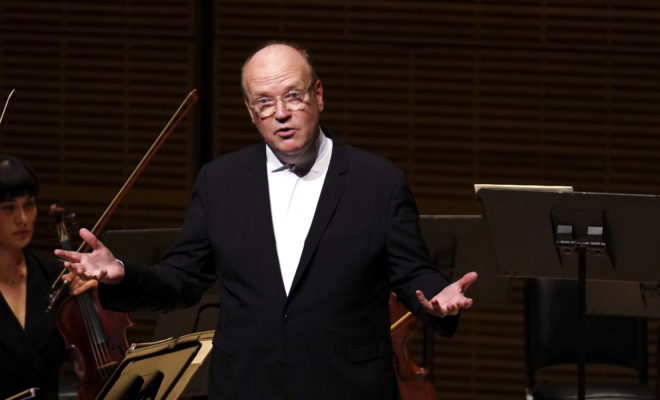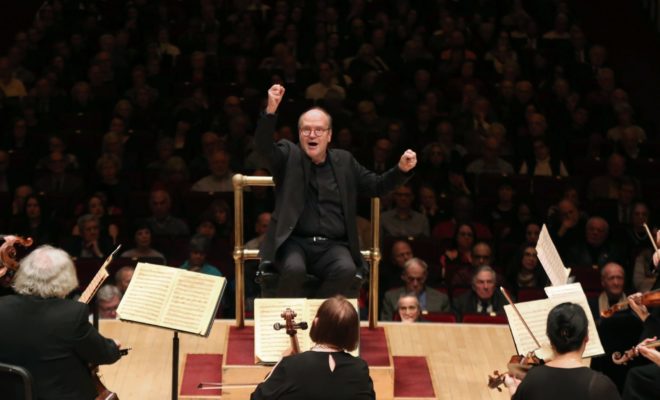The two “Little Notebooks for Anna Magdalena Bach” provide a rare window on the domestic life of the Bach family. Although the title page for each book was written by Anna Magdalena herself, the various pieces found in the books were copied by different members of the family (Johann Sebastian, Anna Magdalena, Johann Christian, Carl Philipp Emmanuel) as well as family friends.
The second book, started in 1725, is especially interesting because it contains a lot of music written by other composers, thus enlightening us on the musical tastes of the family. The most famous of these pieces is the aria ”Bist du bei mir” from the opera Diomedes by Gottfried Heinrich Stölzel (1690-1749), in a version for voice and continuo. We believe it was included in the book in the mid-1730s.
In the later part of his career in Leipzig, Bach copied and used a few of Stölzel’s compositions for church services. We have no evidence that the two men, who were almost exact contemporaries, ever met, but it’s clear that Bach and his family held Stölzel’s music in great esteem.
Anna Magdalena was a soprano by trade and met her future husband while employed as a singer at the court of Prince Leopold in Köthen where Bach was working as Kapellmeister from 1717 to 1723. She was probably proficient enough on the keyboard, judging by the fact the two notebooks contain mostly music for harpsichord. One might think that the few vocal pieces included were favorites of hers.
“Bist du bei mir” is irresistible in its melodic beauty; no wonder it has become a favorite very early on after its first publication by the Bach-Gesellschaft under Bach’s name. Its recent appearance in the epic war movie Joyeux Noël (2005), as sung by Natalie Dessay and Rolando Villazón, has consolidated its iconic status as a quintessential love song.
| If you are with me, then I will go gladly |
| Unto my death and to my rest. |
| Ah, how pleasing were my end |
| If your beautiful hands then |
| Shut my faithful eyes! |
This might sound to us like a very dark text for a love song, but death was very much a part of life in the 18th-century; we only have to remember that seven of the thirteen children Anna Magdalena had with Johann Sebastian died under the age of five. Sadly, she did not die enjoying the comforting presence called for in this beloved aria: she passed away impoverished and abandoned by most of her family in 1760.
We hear this little gem today in an early recording by soprano Karina Gauvin, with whom I have had the privilege of working extensively since 1992. Our first collaboration took place on a snowy night in Hull (now Gatineau) in December of that year when she graciously stepped in on short notice for a run of Messiah performances with Les Violons du Roy. I reached Karina in Montreal on the phone at 8:00am, and she showed up in Hull just in time for that evening’s concert. As a snowstorm had delayed the arrival of the orchestra, we only had ten minutes of rehearsal to prepare, in full view of an arriving audience, immediately before the concert.
Karina was stunning on that night, as she has been ever since. She is one of Quebec’s national treasures.









